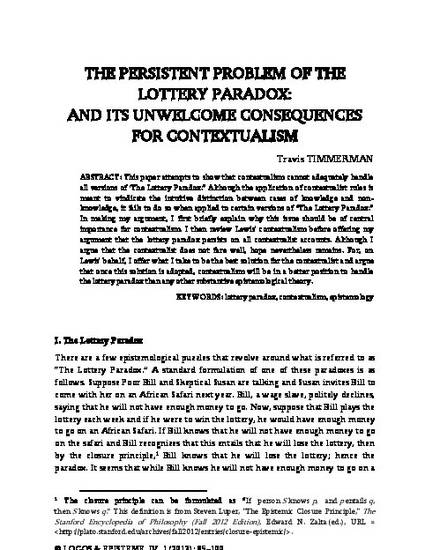
Article
The persistent problem of the lottery paradox: and its unwelcome consequences for contextualism
Logos & Episteme
(2013)
Abstract
This paper attempts to show that contextualism cannot adequately handle all versions of ‘The Lottery Paradox.” Although the application of contextualist rules is meant to vindicate the intuitive distinction between cases of knowledge and nonknowledge, it fails to do so when applied to certain versions of “The Lottery Paradox.” In making my argument, I first briefly explain why this issue should be of central importance for contextualism. I then review Lewis’ contextualism before offering my argument that the lottery paradox persists on all contextualist accounts. Although I argue that the contextualist does not fare well, hope nevertheless remains. For, on Lewis’ behalf, I offer what I take to be the best solution for the contextualist and argue that once this solution is adopted, contextualism will be in a better position to handle the lottery paradox than any other substantive epistemological theory.
Keywords
- lottery paradox,
- contextualism,
- epistemology
Disciplines
Publication Date
2013
Citation Information
Travis Timmerman. "The persistent problem of the lottery paradox: and its unwelcome consequences for contextualism" Logos & Episteme Vol. 4 Iss. 1 (2013) p. 85 - 100 Available at: http://works.bepress.com/travis-timmerman/10/
